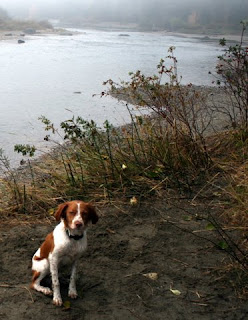In C. S. Lewis' tale, The Lion, the Witch and the Wardrobe, Lantern Waste is a p
 lace that connects the children to a world of purposeful adventure. The warm light of a lamppost shines on a land, Narnia, trapped in the gloom and cold of perpetual winter, and serves as a promise that this need not always be so. Because the lamp burns, there is hope for this land and all the people and creatures living in it. Spring will one day return!
lace that connects the children to a world of purposeful adventure. The warm light of a lamppost shines on a land, Narnia, trapped in the gloom and cold of perpetual winter, and serves as a promise that this need not always be so. Because the lamp burns, there is hope for this land and all the people and creatures living in it. Spring will one day return!On my morning walks with my bird dog, Gilfillan, I often take the river walk to Blackbird Island. The many lampposts I pass by cause me to reflect on how the weekly lectionary groups serve as a type of Lantern Waste...places where God's warm light shines, where participants wrestle with the meaning of that light and the purposes of God and our role in it. Just as the children arrive in Narnia at Lantern Waste to deliver a land facing the curse of perpetual winter, we are discovering that God calls us to be the light in our world as we allow the Spirit, through the discipline fostered by these small groups, to empower us for kingdom living.
We are discovering we cannot do that by ourselves, or even by only attending worship each week. But in the community of the small group, a place of meaningful friendships, we are kept from living distracted lives by being accountable for holy living - engaging in acts of devotion, worship, compassion and justice - and sharing how this is happening. Truly there is a winter gardening that is happening in this season of winter. Hearts are being pruned, our souls fertilized. And the season of advent, the time of preparation, is more real as we discover the joy of living lives touched by a person, Jesus Christ, and filled with his purpose.













































